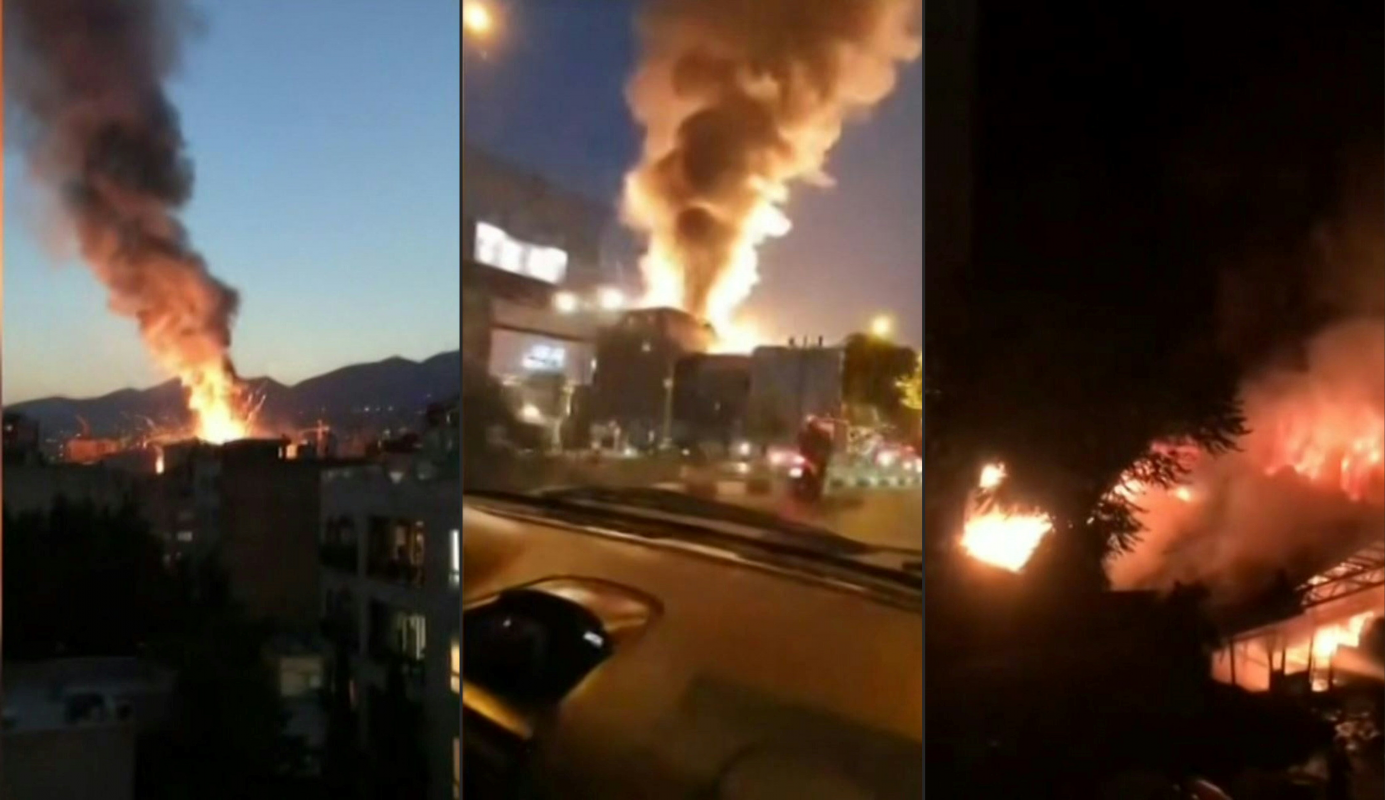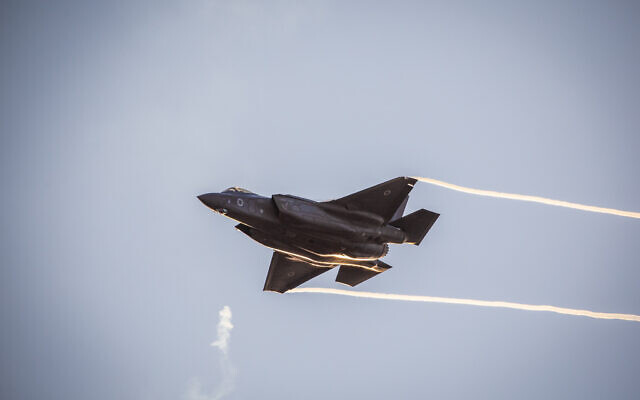Tzachi Hanegbi tells TV news that confronting the Iranian nuclear threat has been ‘a fire burning inside’ incoming premier; ‘when there is no choice, someone needs to take command’
By TOI STAFF4 November 2022, 10:27 pm

Likud MK Tzachi Hanegbi on Channel 12 news, November 4, 2022 (screen capture)
A longtime ally of opposition leader Benjamin Netanyahu said he believes the presumed incoming prime minister will order a strike on Iran’s nuclear facilities if the US does not secure a new nuclear deal with Tehran and fails to take action itself.
Speaking to Channel 12 news on Friday, Tzachi Hanegbi said that in such a situation, Netanyahu “will act, in my assessment, to destroy the nuclear facilities in Iran.”
Hanegbi, a longtime Likud MK and former minister who is not expected to make it into the next Knesset (after placing 46 on the party’s slate in primaries), has made threats of a potential Israeli strike in the past to prevent Iran from developing a nuclear weapon.
Hanegbi said Friday that confronting the Iranian nuclear threat was “a fire that’s been burning inside him for more than 25 years.” He assessed that if no action is taken, “Israel will for the first time be facing a regime with nuclear weapons,” and said that Netanyahu “will not be reconciled with a nuclear Iran.”
“In my assessment, he’ll have no choice [but to strike at Iran’s nuclear facilities]: This is the story of 1981: Begin; 2007: Olmert; 2022…” (Prime minister Menachem approved the 1981 strike that destroyed Saddam Hussein’s nuclear reactor at Osiraq; prime minister Ehud Olmert oversaw the 2007 strike on Syria’s reactor at Al Kibar.)
Get The Times of Israel’s Daily Editionby email and never miss our top storiesNewsletter email addressGET IT
By signing up, you agree to the terms
Asked if Netanyahu had actually told him of such plans, Hanegbi said: “It’s my assessment, based on my over 35 years of knowing Netanyahu… When there is no choice, someone needs to take command — it will be Netanyahu.”
In January 2021, Hanegbi warned that Israel could attack Iran’s nuclear program if the United States rejoined the nuclear deal.
“The practical result will be that Israel will again be alone against Iran, which by the end of the deal will have received a green light from the world, including the United States, to continue with its nuclear weapons program,” Hanegbi said then in an interview with Kan news. “This of course we will not allow.”
ADVERTISEMENT
In February of that year Hanegbi said the US will never attack Iran’s nuclear program and that Israel might have to act alone.
Hanegbi has served in numerous ministries in Likud-led governments in the past, among them regional cooperation, agriculture, public security, transportation, justice and environment. He has not yet indicated what his future plans are following his expected departure from the Knesset.
Israel’s Air Force has long been preparing for a potential strike on Iran’s nuclear sites to prevent it from developing a nuclear weapon, though it is unclear that it has the capacity to cripple the Islamic Republic’s well-protected facilities on its own.
The IAF has practiced strikes in Iran to prepare a credible military threat against Tehran’s nuclear facilities.

An F-35 jet maneuvers during a graduation ceremony for pilots who have completed the IAF Flight Course, at the Hatzerim Air Base in the Negev desert, December 26, 2018. (Aharon Krohn/Flash90/File)
Following the signing of the American-Iranian nuclear accord in 2015, Israel put the issue of a military strike on the Iranian nuclear program on the back burner, allowing the IDF to invest its resources into other areas. But following the US abrogation of the nuclear deal in 2018 and Iran’s subsequent violations of the agreement since then, the matter has taken on renewed importance to Israel, which sees an Iranian nuclear bomb as a near existential threat.
IDF chief of staff Aviv Kohavi said earlier this year that the military “continues to prepare vigorously for an attack on Iran and must prepare for every development and every scenario.”
In addition to having to find ways to strike Iranian facilities that are buried deep underground, requiring specialized munitions and tactics, the Israeli Air Force would have to deal with increasingly sophisticated Iranian air defenses in order to conduct such a strike. The military would also have to prepare for an expected retaliation against Israel by Iran and its allies throughout the region.
While US President Joe Biden made a return to the nuclear deal a priority upon taking office and the sides at one point seemed to be on the verge of agreement, negotiations have stalled amid fresh Iranian demands, and US officials have recently indicated that a deal is unlikely in the near future.
